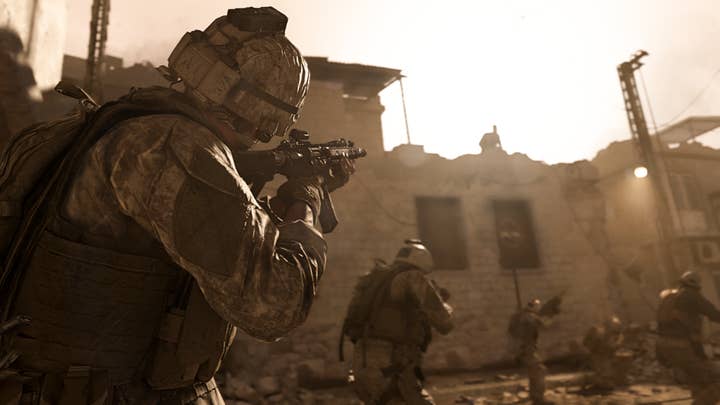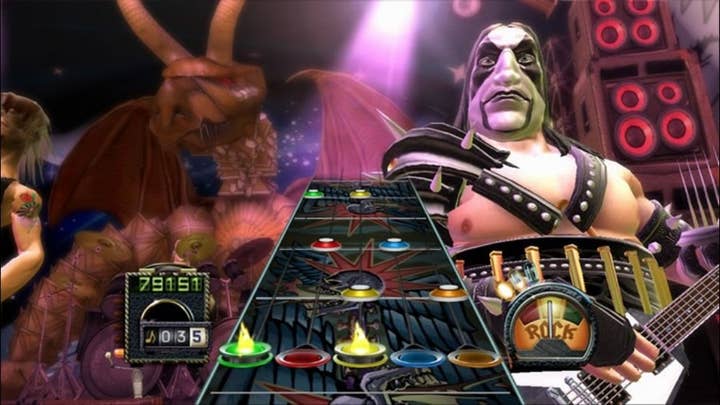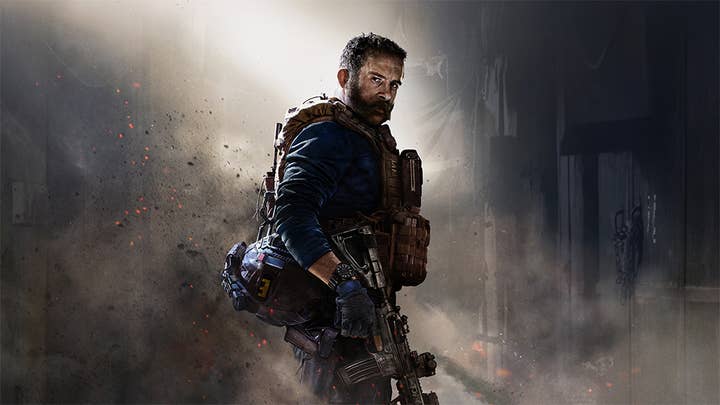The best-selling games of the decade show AAA was left behind by innovation | Opinion
The games industry has made great strides forward in the past ten years - but none of that is apparent in the retail charts
The best-selling games of the decade charts are boring.
According to the NPD Group, seven of the top ten most successful console games in the US since 2010 are Call of Duty. Two are Rockstar games (GTA V at No.1, Red Dead Redemption II at No.9), while the last is Minecraft.
In the UK, as revealed via the BBC earlier this month, things aren't that interesting either. Three of the top ten are Call of Duty. Five are FIFA.
That's not to take away from the success these games have achieved. The dominance of Call of Duty and FIFA shows just how strong those franchises have become, how well their publishers have done to grow these brands, and how loyal their audience is to pick up the latest outing every year.
"There's no denying the success of Rockstar or military shooters in the US. And we can't pretend Britain isn't obsessed with playing footy from the comfort of a sofa"
Let's get the obvious caveats out of the way. The UK charts only represent physical sales, so digital is a significant omission (although it's unlikely that the inclusion of downloads would result in fewer FIFAs, for example). And yes, the culture of the two markets has to be considered. Brits love footy and first-person shooters? You don't say. The US market embracing a series that portrays its military as world-saving heroes, plus games set in a fictional version of an iconic US city and the Wild West, also doesn't exactly beggar belief.
And, of course, all of these are hugely popular mainstream properties. Minecraft may have started as an indie effort, but it's spent the past six years under the ownership of Microsoft and is perhaps the most broadly appealing title on the list.
So it's no surprise that any of them rank so highly. That doesn't make it any less disappointing to see two super franchises dominating when you look at the larger picture.

Look at the other top tens of the decade on the BBC, and you'll see each entertainment industry suffers from the same problem to some degree. Ed Sheeran holds three positions in both the best-selling singles and albums charts, while Fifty Shades author EL James holds the top three in best-selling books (what were you thinking, people?). But no single franchise or creator across these comes close to FIFA taking up fully half of the games chart.
Film arguably has much the same problem as games, with Disney taking up no less than seven spaces in the top ten. But if you split this by franchise or division -- two Star Wars, two Marvels, two live-action remakes, and a Pixar sequel -- this still shows more variety than the UK games chart.
The TV rankings were so flooded by sport that the BBC ran a separate 'excluding sports' chart, in which only The X Factor holds more than one position. So I reached out to GfK Entertainment, which compiles the official UK games charts, and NPD to see if the same occurred in our industry.
UK Top Ten Games Of The Decade (excluding Call of Duty and FIFA)
- Grand Theft Auto V
- Minecraft
- The Elder Scrolls V: Skyrim
- Red Dead Redemption II
- Battlefield 3
- Fallout 4
- Just Dance
- Just Dance 2
- Star Wars Battlefront
- Zumba Fitness
You see? Much more interesting. Sure, Rockstar still holds two positions, but look at the array of games on display. A fantasy RPG and its post-apocalyptic sister series, another modern day military shooter, Star Wars, and a fitness game from back when people actually used their Wiis.
"The best-selling games for the previous decade (2000-2009) better demonstrates an innovative industry"
Zumba is a particularly interesting case. It wasn't a well-known games brand, and was brought to market by Majesco, one of the industry's smaller publishers. Yet, it managed 13 weeks at No.1 in the weekly charts, and a record-breaking 28 consecutive weeks at the top of the Wii chart. Also, throw Ubisoft's Just Dance duo into the mix and that's three dancing titles among the UK's best-selling games of the decade. All of that drowned out by Call of Duty and FIFA.
In the US, things also begin to change. Factor out Rockstar and Call of Duty, and you're left with three Battlefields (military shooters account for 14 of the top 25), three Nintendo titles (Mario Kart 8, Zelda: Breath of the Wild, and Smash Bros Ultimate -- each a different experience), Destiny, Star Wars Battlefront, Skyrim, and Minecraft (Note: not in this order).
No matter which way you spin it, there's no denying the success of Rockstar or military shooters in the US. Equally, we can't just pretend that Britain isn't obsessed with playing footy from the comfort of a sofa. The public decides what is most popular, and it has decided it is Grand Theft Auto in both markets.
But compare it to the US' best-selling games of the previous decade (2000-2009), as compiled by NPD:
- Guitar Hero III: Legends of Rock
- Wii Fit
- Rock Band
- Wii Play (with Wii Remote)
- Guitar Hero: World Tour
- Call of Duty: Modern Warfare 2
- Call of Duty 4: Modern Warfare
- Mario Kart Wii
- Grand Theft Auto: San Andreas
- Call of Duty: World at War
Okay, not significantly more diverse, but as the Nintendo listings demonstrate, the chart for the previous decade better demonstrates an innovative industry.
Of the platform holder's three games, only Mario Kart Wii is an extension of a long-running franchise -- and it's some distance behind the other two. Wii Fit showed there was a strong interest in games that were also beneficial to your health, while Wii Play's performance (while undeniably due in part to the fact it came bundled with an extra controller) demonstrates the experiments with motion controls that were making gaming accessible to a much broader audience than the hobby had every managed before.
Look elsewhere in that chart and more innovations become apparent. Guitar Hero and Rock Band tapped into the musical experience, with unique controllers that delivered the rock star fantasy in a novel way. Modern Warfare revolutionised both the Call of Duty series and the shooter genre in general. San Andreas built on the groundbreaking formula of GTA 3, released earlier in the same decade. Only Mario Kart Wii offered largely the same gameplay experience that players had enjoyed the decade before.

Now let's look again at the best-selling games of the past ten years. Grand Theft Auto V, while still following the GTA 3 template (as is almost every other open-world game further down the rankings), was masterfully executed and redefined success in entertainment with its (still expanding) online mode. Minecraft, also, is an admirable title in the way it empowers children to be creative. But every Call of Duty listed continues to iterate on the Modern Warfare formula - alright, each outing tests the waters with something new, but the formula is largely the same. FIFA is essentially the same game every year -- the evolution of Ultimate Team could be seen as an innovation, but the mode debuted in 2008.
And perhaps the latter explains why we see so little innovation in these charts -- it's all happening elsewhere. Minecraft, while it debuted in 2009, is an example of a game that evolves over time, even before it's officially released. The result? The Early Access system that sees developers selling unfinished but rapidly improving games. FIFA's Ultimate Team shows how the monetisation models have been changing, effectively using loot boxes long before politicians and gambling commissions began decrying their use in AAA games.
"The most successful publishers in this space shift more boxes by polishing what has come before rather than trying something new"
Fortnite combines the two, constantly revamping itself to retain its audience and generating billions without selling the base game -- yet since Epic doesn't regularly report the money this brings it, it's impossible to track it in a conventional way for an accurate comparison. League of Legends, while released at the tail end of 2009, has transformed into a multi-billion dollar franchise, although (much like Fortnite) this is not reported in the same way.
There are other aspects of the market that could never be celebrated in such rankings. The mobile market as we know it, while officially begun with the launch of the App Store in 2008, has transformed into the largest segment of the entire games industry over the past ten years, driven by free-to-play titles that work their way into their players' daily schedules (as opposed to being entertainment enjoyed as and when people have time to sit down to their console or PC). Pokémon Go and Candy Crush are nowhere to be seen.
And there have been attempts at innovative new game types in the past decade. We've seen the emergence of virtual reality which, while a niche market, is creating a gaming experience unlike anything seen in the past. At retail, there was the rise and fall of the toys-to-life genre with Skylanders and Disney Infinity. While neither brand managed to rank highly in the charts, they both created fresh demand for the industry -- something Nintendo tapped into as it followed up with its lucrative Amiibo series.
But, for a myriad of reasons, these innovations just haven't sold well enough to unseat the long-running super franchises. So we're left with two top tens that show the traditional market of retail, consoles and PC are still largely dominated by a handful of franchises. That the most successful publishers in this space shift more boxes by polishing what has come before rather than trying something new. And perhaps that console players are just as risk averse as the AAA publishers coveting their hard-earned cash.
As we look forward to the next decade, of the rise of cloud gaming and the ongoing shift to digital, we can only hope that the traditional console and PC space explores new ideas and finds other ways to resonate with people, rather than retreading the same old ground. We can hope that the audience for these platforms (the ones that dictate this chart) expands to encompass a wider range of tastes and preferences -- people who don't just want to buy the same experience year-in, year-out. We can hope that when non-gamers look at the best-selling titles of the 2020s, they don't assume the only thing gamers want to do is throw themselves into make believe military shootouts.
And we can hope that someone (anyone) releases something that sells better than Call of Bloody Duty. Please.









